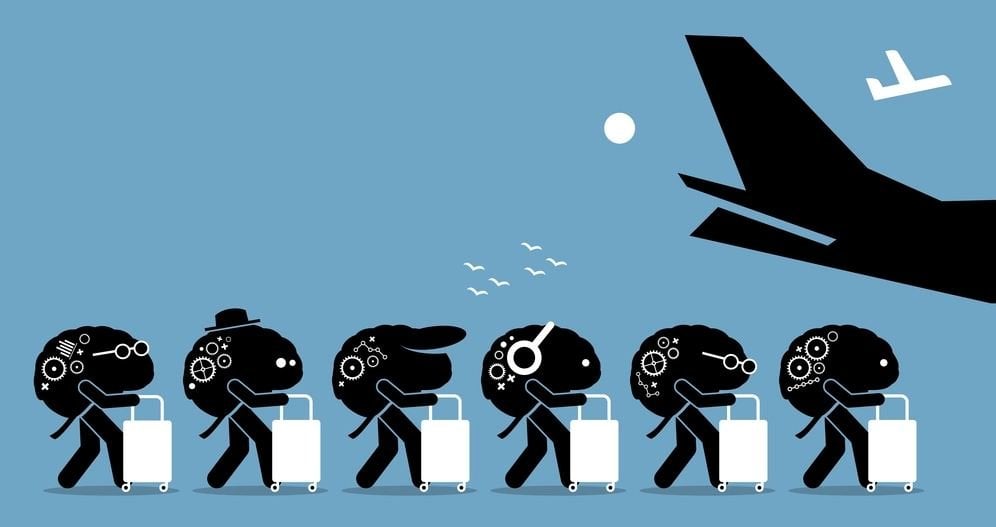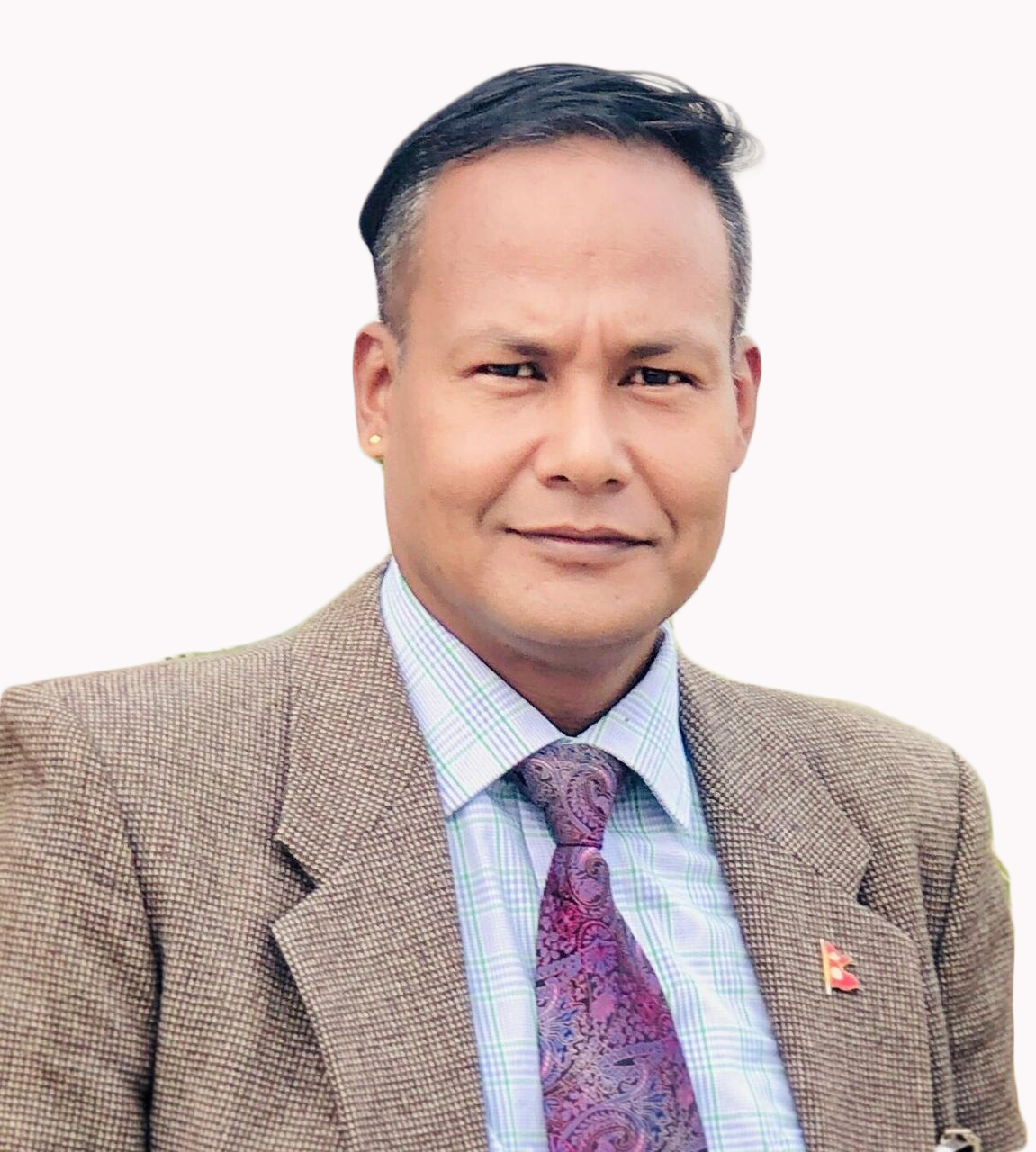BRAIN DRAIN: A CHANGING PHENOMENON OF THIS CENTURY

Brain Drain occurs for a variety of reasons, but one of the primary reasons is the search for better opportunities and a higher standard of living. Skilled workers, such as doctors, engineers, and scientists, often find that they can earn higher salaries and have better access to resources, such as advanced technology and research facilities, in other countries. Additionally, some countries may not have the same level of political stability, economic growth, or social freedoms, which can make it difficult for skilled workers to achieve their professional and personal goals. Another reason for Brain Drain is the lack of job opportunities in certain fields or sectors. Skilled workers may find that there are limited job opportunities in their home countries, particularly in specialized fields such as healthcare, technology, and engineering. This can lead to frustration and a desire to seek better opportunities elsewhere.
Brain Drain can also occur due to political or social factors, such as political instability, discrimination, or social unrest. In such cases, skilled workers may feel unsafe or unwelcome in their home countries and seek better living conditions and more freedom in other countries. Advancements in technology and transportation have made it easier for skilled workers to move around the world and find new opportunities. With the growth of the internet and digital technologies, many skilled workers can work remotely from anywhere in the world, making it easier to move to countries with better living conditions and opportunities.
Overall, Brain Drain occurs due to a combination of factors, including economic, political, social, and technological factors. It is important for countries to understand the reasons behind Brain Drain and develop policies that address the root causes, while also creating opportunities and incentives for skilled workers to stay in their home countries. Brain Drain is a phenomenon that has been affecting various countries across the world for many decades. It refers to the migration of highly skilled and talented individuals from one country to another in search of better opportunities, higher salaries, and better living standards. Brain Drain can have a significant impact on the country that loses its skilled workforce, particularly in areas such as healthcare, technology, and education. However, in recent years, Brain Drain has become a changing phenomenon, with new factors influencing the migration of skilled workers.
One of the significant changes in the Brain Drain of this century is the rise of the digital economy. The growth of the internet, cloud computing, and other technological advances have made it easier for skilled workers to work remotely from anywhere in the world. This has led to the emergence of a new trend known as 'digital nomadism.' Digital nomads are people who work remotely and travel the world while earning a living. They are not tied to any location and can work from anywhere with an internet connection. This has created a new form of Brain Drain where skilled workers are not necessarily leaving their home countries but are working remotely for companies based in other countries. Another changing factor in Brain Drain is the growing importance of social and environmental factors. Today's workers are more concerned about their work-life balance, social and environmental impact, and quality of life than ever before. They are willing to relocate to places that offer a better quality of life, better healthcare, and more sustainable living conditions. This has led to the emergence of new destinations for skilled workers, such as Costa Rica, Portugal, and Spain, which offer a better work-life balance, social and environmental benefits, and a lower cost of living.
The changing nature of Brain Drain has also led to a new form of brain circulation. Brain circulation refers to the flow of skilled workers between countries. In the past, Brain Drain was seen as a one-way flow of skilled workers from developing countries to developed countries. However, today, skilled workers are moving between countries, gaining new skills and experiences, and bringing them back to their home countries. This has led to a new form of brain gain, where developing countries are benefiting from the skills and knowledge of their citizens who have worked and lived abroad.
Brain Drain is a significant issue for developing countries, as it involves the migration of highly skilled and educated professionals from these countries to other countries. The loss of skilled workers can have a detrimental effect on the economic, social, and political development of these countries. One of the primary reasons for Brain Drain in developing countries is the lack of opportunities and resources. Many developing countries have limited resources and opportunities for skilled workers in fields such as healthcare, engineering, and technology. As a result, many skilled workers are forced to seek better opportunities and higher salaries in developed countries. The lack of funding and investment in research and development also contributes to the Brain Drain, as skilled workers may not have access to the latest technologies and resources needed to advance their careers. Additionally, political instability and corruption in developing countries can lead to Brain Drain. Skilled workers may not feel secure in their jobs or may be concerned about the political and social environment in their home countries. They may also face discrimination or limited opportunities due to their ethnicity, gender, or social class.
Another contributing factor to Brain Drain in developing countries is the lack of incentives to stay. Many skilled workers are attracted to developed countries due to the better living conditions, access to advanced technology, and higher salaries. Developing countries need to offer incentives such as higher salaries, better working conditions, and investment in research and development to encourage skilled workers to stay. The Brain Drain in developing countries has significant economic and social consequences. It can lead to a shortage of skilled workers in critical sectors such as healthcare and technology, which can hinder the development of these sectors. It can also lead to brain gain for developed countries, as they benefit from the skills and knowledge of skilled workers from developing countries.
To address the Brain Drain in developing countries, policymakers need to take action to improve the economic and social conditions of these countries. This includes investing in education, research, and development, creating more job opportunities, and providing incentives for skilled workers to stay. It is also essential to address the political and social factors that contribute to Brain Drain, such as corruption, discrimination, and social unrest. By addressing these issues, developing countries can reduce the Brain Drain and retain their skilled workforce, which can contribute to their economic and social development.
Brain Drain is a significant issue in Nepal, as many highly skilled and educated Nepalese professionals are leaving the country in search of better opportunities and living conditions abroad. This trend has had a significant impact on the economic, social, and political development of Nepal. One of the primary reasons for the Brain Drain in Nepal is the lack of opportunities and resources. Many skilled workers in Nepal do not have access to the latest technology, research, and development facilities, and they may not be able to earn competitive salaries. The lack of job opportunities in sectors such as healthcare, engineering, and technology also contributes to Brain Drain. Additionally, political instability and corruption in Nepal have led to a Brain Drain. Many skilled workers are concerned about the political and social environment in Nepal, and they may not feel secure in their jobs. Corruption also makes it difficult for skilled workers to advance their careers, as they may not have access to opportunities based on merit.
Another factor contributing to Brain Drain in Nepal is the lack of incentives to stay. Many Nepalese professionals are attracted to developed countries due to the better living conditions and higher salaries. Nepal needs to offer incentives such as higher salaries, better working conditions, and investment in research and development to encourage skilled workers to stay. The Brain Drain in Nepal has significant economic and social consequences. It has led to a shortage of skilled workers in critical sectors, which can hinder the development of these sectors. It has also contributed to brain gain for developed countries, as they benefit from the skills and knowledge of Nepalese professionals.
To address the Brain Drain in Nepal, policymakers need to take action to improve the economic and social conditions of the country. This includes investing in education, research, and development, creating more job opportunities, and providing incentives for skilled workers to stay. It is also essential to address the political and social factors that contribute to Brain Drain, such as corruption and political instability. By addressing these issues, Nepal can reduce the Brain Drain and retain its skilled workforce, which can contribute to the country's economic and social development.
Furthermore, the COVID-19 pandemic has also had a significant impact on Brain Drain. The pandemic has forced many companies to adopt remote working, which has made it easier for skilled workers to work from anywhere in the world. Additionally, the pandemic has highlighted the importance of healthcare and the need for skilled healthcare workers. This has led to a surge in demand for healthcare workers, and many countries are now offering better incentives and benefits to attract and retain skilled healthcare workers.
Brain Drain is not a necessary phenomenon indeed, as it involves the loss of skilled workers from their home countries, which can have significant economic, social, and political consequences. The migration of skilled workers to other countries can result in a shortage of talent in critical sectors such as healthcare, engineering, and technology, which can hinder the development of these sectors.
However, it is important to note that individuals have the right to seek better opportunities and living conditions for themselves and their families. In many cases, skilled workers may feel that they have no choice but to migrate to other countries to achieve their goals and improve their quality of life. Therefore, rather than focusing on stopping Brain Drain altogether, policymakers should work to reduce its negative impacts on their countries. This can be achieved by creating better opportunities and working conditions for skilled workers in their home countries, investing in education and research, and implementing policies that make it more appealing for skilled workers to stay.
It is also important to recognize that Brain Drain can have some positive impacts, such as remittances sent back home by skilled workers living abroad. Remittances can provide a significant source of income for families and communities in developing countries, which can help to alleviate poverty and improve their quality of life. Overall, while it is not necessary to have Brain Drain, it is important to recognize the right of individuals to seek better opportunities for themselves and their families. Policymakers should focus on reducing the negative impacts of Brain Drain, while also working to create better opportunities and living conditions for skilled workers in their home countries.
In conclusion, Brain Drain is a changing phenomenon of this century, with new factors influencing the migration of skilled workers. The rise of the digital economy, social and environmental factors, brain circulation, and the COVID-19 pandemic are all shaping the future of Brain Drain. While Brain Drain can have negative effects on countries that lose their skilled workforce, it can also bring benefits through brain circulation and the exchange of knowledge and ideas. It is essential for policymakers to understand these changing factors and create policies that attract and retain skilled workers while also addressing the root causes of Brain Drain.


Leave Comment